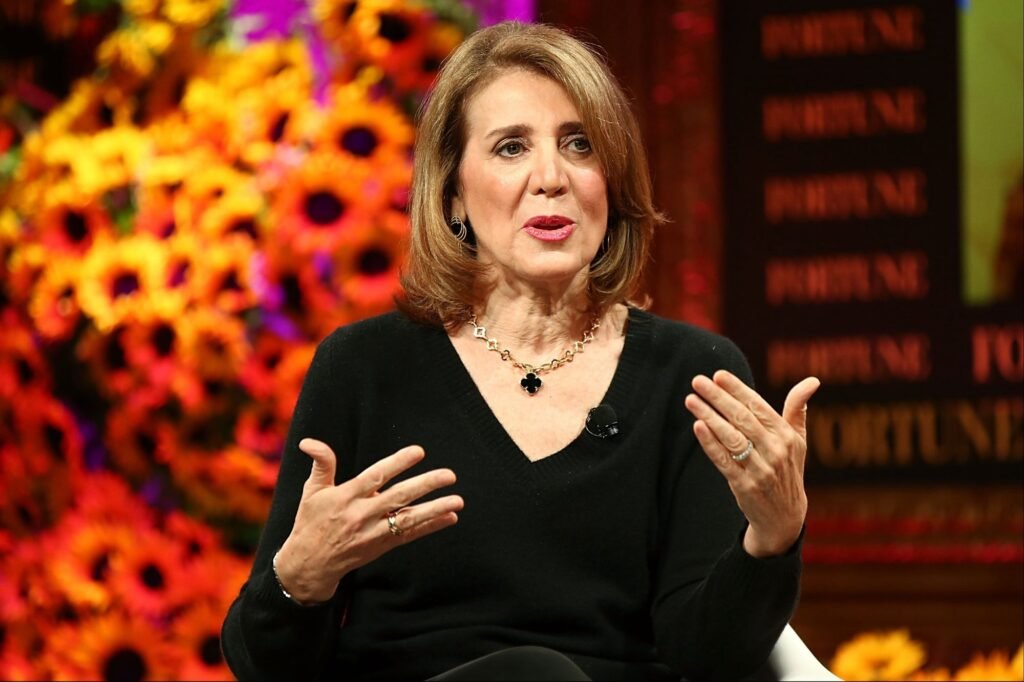Google has made multi-million dollar investments in founders, internet infrastructure and clean energy, but its biggest gamble so far has been choosing to add AI to search, says Google’s chief investment officer and president Ruth Porat.
“The biggest bet we continue to make is actually the application of AI to search and continuing to evolve that experience,” Porat said earlier this week at the Reuters NEXT Conference. “We’re meeting people where they want to be met. It’s extraordinary.”
Porat mentioned that it was “beautiful” to see Google Search go from “10 blue links,” or the 10 links per page that characterized Google’s old search result interface, to now AI overviews, or AI-written summaries of search results that populate at the top of Search.
“It keeps evolving,” she said.
 Google CIO Ruth Porat. Photo by Joe Scarnici/Getty Images for Fortune
Google CIO Ruth Porat. Photo by Joe Scarnici/Getty Images for Fortune
Google began rolling out AI overviews to U.S. users in May. Almost immediately, things started going wrong. The AI search results were hallucinating or spewing inaccuracies, telling users to eat rocks or make pizza sauce with non-toxic glue, for example.
Related: These Are AI’s ‘Most Obvious’ Risks, According to Google’s Former CEO
In the following months, Google adjusted the sources that it drew from for AI overviews, shifting away from forum-based sites like Reddit and more to sites with specialized knowledge, like Runners World.
Now, it’s clear that Google intends to keep adding AI features to search, even if it is a risky move.
Last week, Google CEO Sundar Pichai explained at the New York Times DealBook Summit that Google Search will significantly change next year. As AI models get more advanced, Search will be able to handle more complex questions than ever.
“I think you’ll be surprised even early in ’25 the kind of newer things Search can do compared to where it is today,” he said.
Related: Google CEO Sundar Pichai Says ‘You’ll Be Surprised’ By How Google Search Changes Next Year
Google has 89.98% of the global search engine market share, according to Stat Counter, with competitors like Bing and Yahoo! only holding 3.94% and 1.24% respectively.




